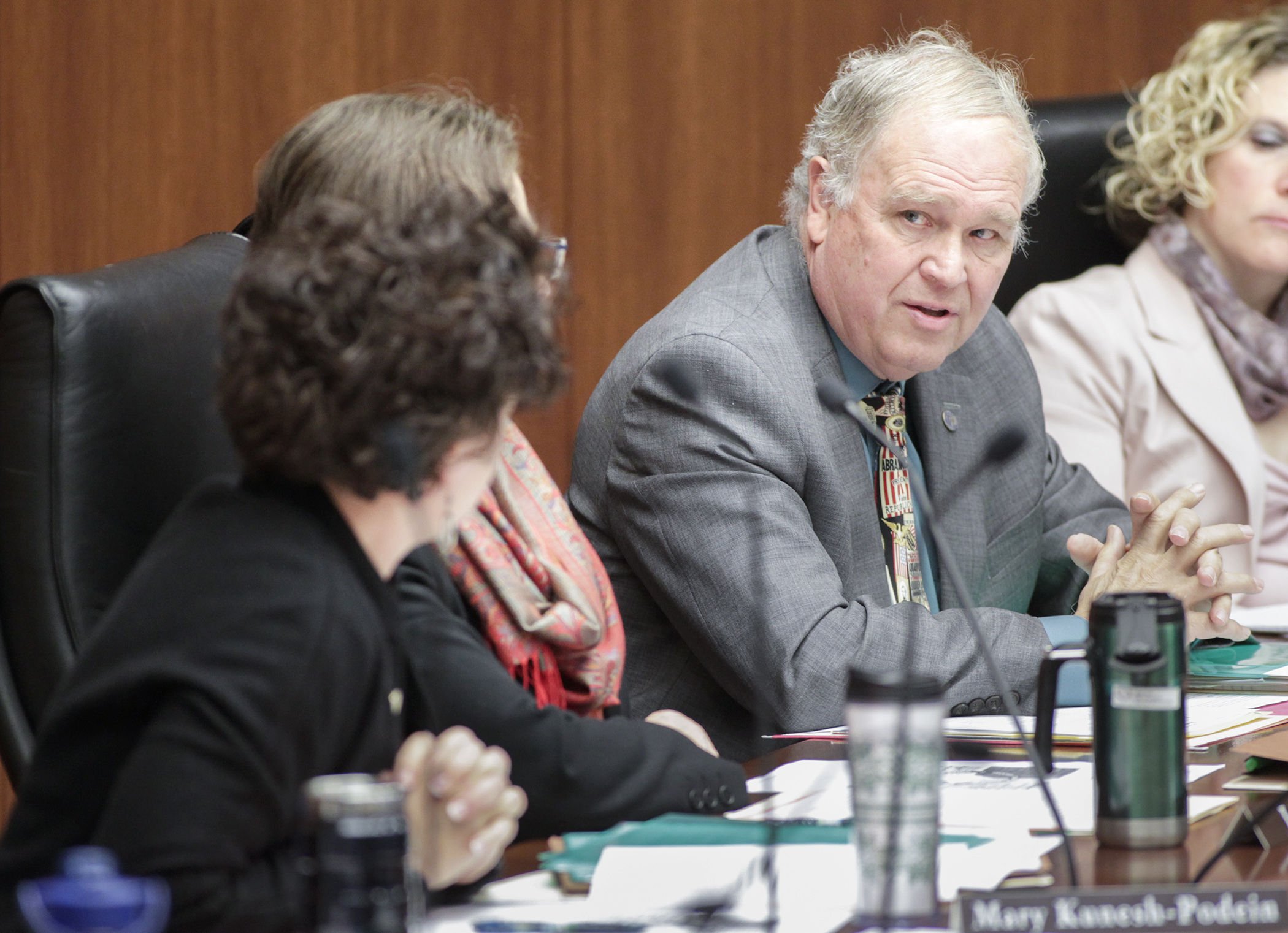Proposed curriculum addition spurs discussion on civic engagement

What is the “supreme law of the land?” When was the Declaration of Independence adopted?
If the Constitution and July 4, 1776, didn’t come to mind, then students may need to further study their understanding of civics; if they don’t, proposed legislation could put their grades in jeopardy.
“We believe it’s important for students to know how our country works; the rudiments of our democracy,” Rep. Dean Urdahl (R-Grove City) said. “The goal is to be able to list more presidents than Kardashians.”
HF731, sponsored by Rep. Sondra Erickson (R-Princeton), would add citizenship and civic studies instruction requirements into the social studies curriculum for school districts. Curriculum testing is required for social studies and other subjects such as reading, writing, literature (fine arts), math, science, history, geography and government.
The House Education Innovation Policy Committee laid the bill over Tuesday for possible omnibus bill inclusion. It has no Senate companion.
WATCH Full video of Tuesday's meeting of the House Education Innovation Policy Committee on YouTube
Civics test questions would include what the United States Citizenship and Immigration Services poses to applicants for naturalization to demonstrate knowledge and understanding of the fundamentals of United States history and government. Students would be required to answer 30 of 50 questions correctly.
“We realize we have these standards being taught, but go out on the street and ask questions; there’s not a comprehensive understanding of these things,” Rep. JoAnn Ward (DFL-Woodbury) said. “It is important for [students] to have this knowledge… Everybody should know this.”
Although not contentious, concerns still arose over whether the addition was necessary given the range of social studies subjects already taught.
“We already have standards embedded into our curriculum. … This is adding another test to students’ loads that isn’t necessarily an issue in Minnesota,” said Adosh Unni, director of government relations for the Department of Education. “This would seemingly create a teaching-to-test environment. We should allow districts to teach the curriculum as they see fit.”
Related Articles
Search Session Daily
Advanced Search OptionsPriority Dailies
Legislative leaders set 2026 committee deadlines
By Lisa Kaczke Legislative leaders on Tuesday officially set the timeline for getting bills through the committee process during the upcoming 2026 session.
Here are the three deadlines for...
Legislative leaders on Tuesday officially set the timeline for getting bills through the committee process during the upcoming 2026 session.
Here are the three deadlines for...